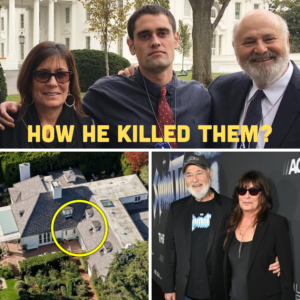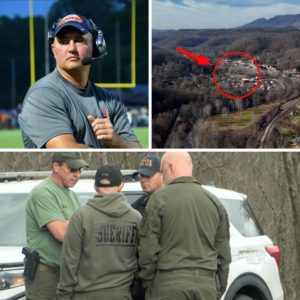In the shadowy underbelly of early 2000s London, where the Thames whispers secrets of the forgotten and the streets pulse with the rhythm of hurried commuters, a predator prowled. He struck without warning, targeting young women in moments of vulnerability—bludgeoning them with brutal efficiency, leaving behind scenes of incomprehensible horror. This wasn’t the stuff of Hollywood thrillers with charismatic villains and high-octane chases. This was real life: a string of unsolved murders that gripped the nation, shattered families, and exposed the grinding, unglamorous machinery of justice. Fast-forward two decades, and that nightmare has been reborn on screen in Manhunt, a riveting three-part ITV drama that transforms beloved comedy actor Martin Clunes into a steely-eyed detective on a mission. Airing over three consecutive nights in January 2019, the series didn’t just recount a manhunt; it dissected the human cost of evil, earning it the crown as ITV’s highest-rated new drama debut since Broadchurch in 2013, with nearly nine million viewers tuning in. For those who’ve only known Clunes as the gruff, fish-allergic GP in Doc Martin, this is a revelation—a career-defining pivot into unflinching true crime that proves why audiences can’t look away.
At its core, Manhunt is the story of Detective Chief Inspector Colin Sutton, a no-nonsense Metropolitan Police veteran thrust into the investigation of a murder that would unravel a web of depravity. On August 19, 2004, 22-year-old French student Amélie Delagrange stepped off a bus in Twickenham, her mind likely wandering to the adventures of her summer abroad. She never made it home. Found battered and lifeless on Twickenham Green by a passerby, her death was a senseless explosion of violence: multiple blows to the head with a blunt object, no robbery, no sexual assault—just raw, inexplicable rage. The scene yielded nothing: no DNA, no witnesses, no motive. It was the kind of case that could bury a detective, especially one like Sutton, who was stepping up to his first major lead role after years in the shadows of larger inquiries.
Played with quiet intensity by Clunes, Sutton is no maverick cop bucking the system with dramatic flair. He’s a family man in his late 40s, bespectacled and unassuming, more likely to clutch a thermos of tea than a badge-flashing swagger. “I’m not here to play hero,” his character seems to embody, as he pores over maps and CCTV grain in a dimly lit incident room. Clunes, drawing from Sutton’s own memoirs, infuses the role with a lived-in authenticity that’s miles from his comedic roots. Gone is the bumbling everyman of Men Behaving Badly; in his place is a man whose determination simmers beneath a calm exterior, eroded only by the toll of sleepless nights and the gnawing fear that another girl might die on his watch. Viewers raved about this reinvention—one X user called it “Clunes at his absolute peak, shedding Doc Martin like a snake’s skin for something raw and real.” It’s a performance that doesn’t demand the spotlight; it earns it through subtle cracks in the facade, like the way Sutton’s hand trembles ever so slightly when consoling Amélie’s grieving parents across the Channel.
The drama unfolds with methodical precision, mirroring the real-life investigation’s painstaking rhythm. Episode one plunges us into the chaos of the crime scene: uniforms cordoning off the green under sodium lights, forensic teams combing dew-kissed grass for elusive clues. Sutton arrives, clipboard in hand, immediately sensing this isn’t a random act. “It’s too clean,” he mutters to his team, his Surrey accent clipped with focus. As days bleed into weeks, the pressure mounts. Superiors demand quick results; the press bays for blood. Yet Sutton digs deeper, cross-referencing unsolved assaults that echo Amélie’s fate. A hit-and-run on 19-year-old Kate Sheedy in 2004, who miraculously survived a similar bludgeoning after being rammed by a white people carrier. And further back, the hammer murder of 19-year-old Marsha McDonnell outside a south London bus stop in 2003, her skull fractured in a frenzy of blows.
What elevates Manhunt beyond procedural boilerplate is its unflinching gaze at the victims—not as plot devices, but as vibrant lives extinguished too soon. Amélie, portrayed in flashbacks by French actress Méline Bell, isn’t just a tragic footnote; she’s a free-spirited au pair chasing dreams in a foreign city, her laughter echoing in grainy home videos. Marsha, a bubbly aspiring actress, dreams of treading the boards at the National Theatre. Their stories intercut with the investigation, humanizing the stakes. One heartbreaking sequence shows Amélie’s mother, voice breaking over a crackly phone line, pleading for answers: “She was just walking home. Who does that to a girl?” It’s devastating, a reminder that behind every statistic lies a family forever fractured. The series honors this by avoiding sensationalism—no lingering gore shots, no exploitative reenactments. Instead, it lets the weight of absence speak: empty bus seats, unopened suitcases, vigils under rainy skies.
As Sutton’s team widens the net, the drama builds like a storm gathering over the Thames. They chase leads through dingy wheel-clamping yards and overcrowded pubs, interviewing hundreds in a city that feels both intimately knowable and vast. A breakthrough comes via a forgotten witness statement: a woman who saw a white van idling near the green, its driver a stocky man with a predatory stare. The name Levi Bellfield surfaces like a toxin seeping into water. Born Levi Rabbetts in 1968 to a Romani family on a southwest London estate, Bellfield was no shadowy phantom but a disturbingly ordinary monster—a self-employed wheel-clamper with a string of ex-girlfriends and a rap sheet for violence against women. He’d fathered 11 children by multiple partners, charming them with flowers before unleashing fists. To the outside world, he was the bloke next door, quick with a joke at the local. But beneath lurked a misogynistic rage, fueled by rejection and control fantasies. “Women who say no deserve it,” he’d sneer to friends, his temper a lit fuse.
Episode two ramps up the tension as Sutton connects the dots. Bellfield’s Toyota Previa matches Kate Sheedy’s description—blacked-out windows, broken wing mirror, the works. He lived blocks from Marsha’s murder site. And then, the gut punch: a link to the 2002 abduction of 13-year-old Milly Dowler from a Walton-on-Thames railway station. Milly, last seen clutching her schoolbag, vanished into thin air, her body found months later in woods. The nation had mourned her; phone-hacking scandals would later tarnish the coverage. Sutton, haunted by the parallels—blunt force, opportunistic strikes—pushes his team to reexamine overlooked evidence. Surveillance footage flickers on screens, witnesses’ voices overlap in montages of dogged interviews. Clunes captures Sutton’s quiet fury, slamming a fist on a desk not in rage, but exhaustion: “How many more before we get him?”
The final episode is a masterclass in cathartic payoff. With Bellfield in custody—arrested in a dawn raid after a tip from an ex-partner—the focus shifts to the courtroom crucible. Prosecutors, skeptical at first, build a case on circumstantial threads: vehicle records, phone pings, a hammer bought days before Amélie’s death. Bellfield, played with chilling banality by Celyn Jones, is no snarling beast. He’s smug, evasive, his eyes darting like a cornered rat. Jones nails the banality of evil—a man who views his crimes as conquests, blaming “slags” who “asked for it.” The trial scenes are taut, intercut with victim impact statements that rip the heart out. Marsha’s mother, voice steady through tears, recounts the “hole in our family.” It’s unflinching, forcing viewers to confront not just the killer, but the system’s creaks—overworked coppers, budget cuts, the luck factor in cracking cold cases.
What makes Manhunt unmissable is its refusal to glamorize. This isn’t Line of Duty with bent coppers and twists; it’s a love letter to the drudgery of detection. Endless door-knocks, database dives, the tedium of stakeouts where rain patters on unmarked vans. Sutton’s home life fractures under the strain—dinners cold, his wife (a poignant Claudie Blakley) juggling her own cases while raising teens who barely recognize their dad. Yet it’s this humanity that grounds the terror. As one reviewer noted on Rotten Tomatoes, “Clunes makes Sutton feel like your uncle who’s secretly a lion—mild until the hunt begins.” The series aired amid a true-crime boom, but stands apart by consulting Sutton himself, ensuring fidelity over flash. “It’s not about me,” the real Sutton said in interviews. “It’s about the girls who didn’t get justice until too late.”
The impact? Immediate and seismic. Overnight ratings soared to 8.7 million, climbing to nine million with catch-up views—a feat in an era of streaming fragmentation. Critics hailed it as “sober and responsible,” per The Guardian, praising its “fleetness and lightness of touch” in heavy material. The Sunday Times called it “a deftly constructed dramatisation” that sidesteps cliché for raw truth. On X (formerly Twitter), the buzz was electric: “Binged in one night—thrilling, devastating, utterly unmissable,” tweeted one fan, echoing the sentiment of thousands. Guillermo del Toro, no stranger to dark tales, championed it as “remarkably un-dramatized… feels real.” Clunes, long typecast in comedy, saw his star rise anew; whispers of BAFTA nods followed, though he demurred, crediting the ensemble—supporting turns from Matthew Gravelle as a weary DS and Alun Armstrong as a grizzled pathologist add layers of camaraderie amid the grim.
But Manhunt‘s legacy endures beyond numbers. It reopened wounds for survivors like Kate Sheedy, who watched her ordeal replayed with dignity, and sparked conversations on violence against women—a plague still claiming lives two decades on. Bellfield, convicted in 2008 of Amélie and Marsha’s murders, plus Kate’s attempted murder, drew three life sentences. In 2011, he was nailed for Milly’s killing, ensuring he’d rot in Belmarsh Prison. Sutton retired in 2011 after 30 years, penning memoirs that birthed the series. Today, at 60, he tours theaters, dissecting cases with the same precision.
For newcomers, Manhunt is more than a binge—it’s a mirror to society’s shadows. In an age of slick Netflix imports, this British gem reminds us why true crime captivates: not the spectacle, but the stubborn pursuit of light in darkness. Clunes doesn’t just reinvent himself; he redefines the genre, proving that the most chilling hunts are the quiet ones. Stream it tonight, and you won’t forget the faces staring back from those wanted posters. Because in London’s endless sprawl, monsters walk among us—and heroes, it turns out, look a lot like Martin Clunes with a cuppa in hand.



